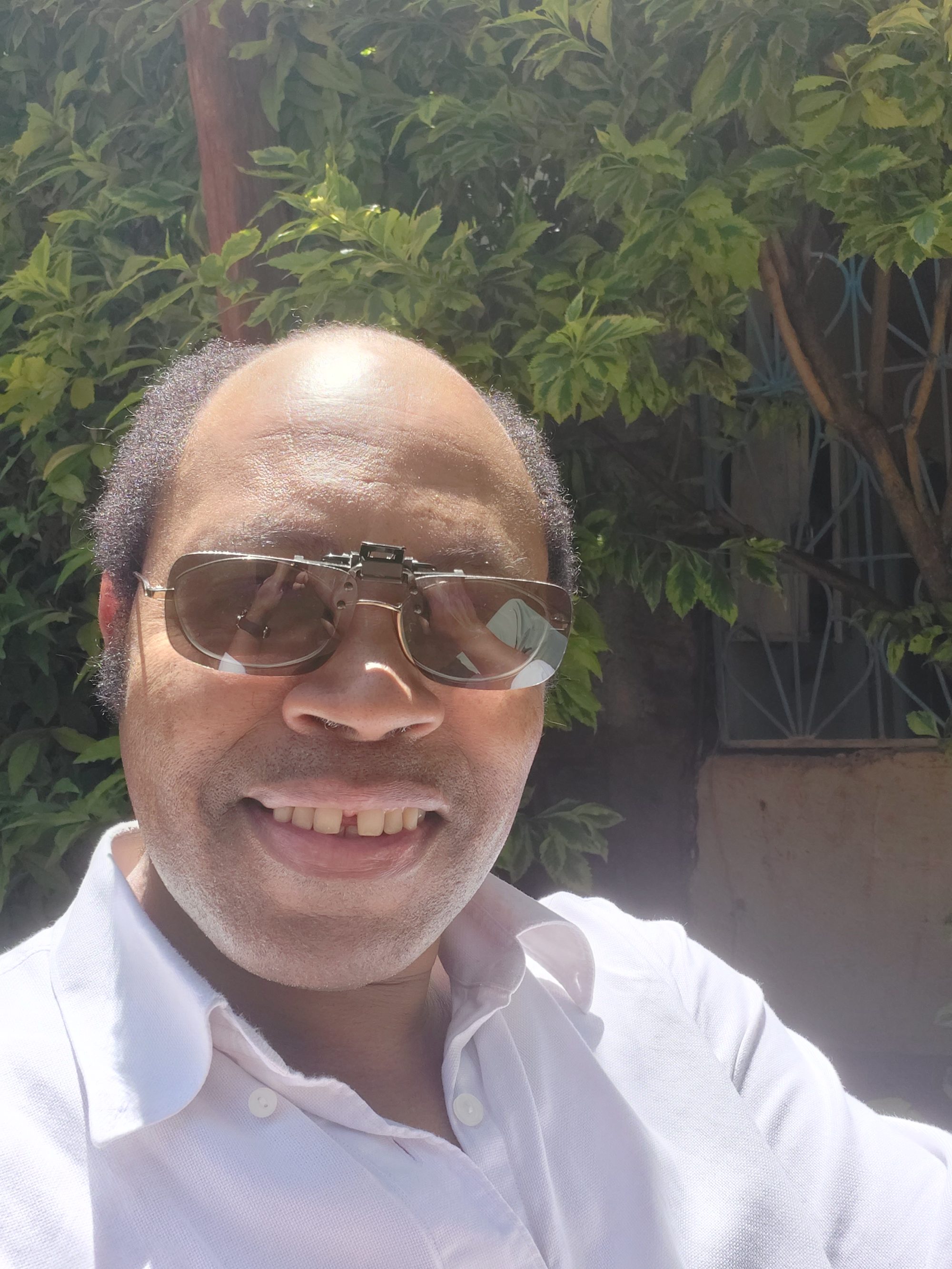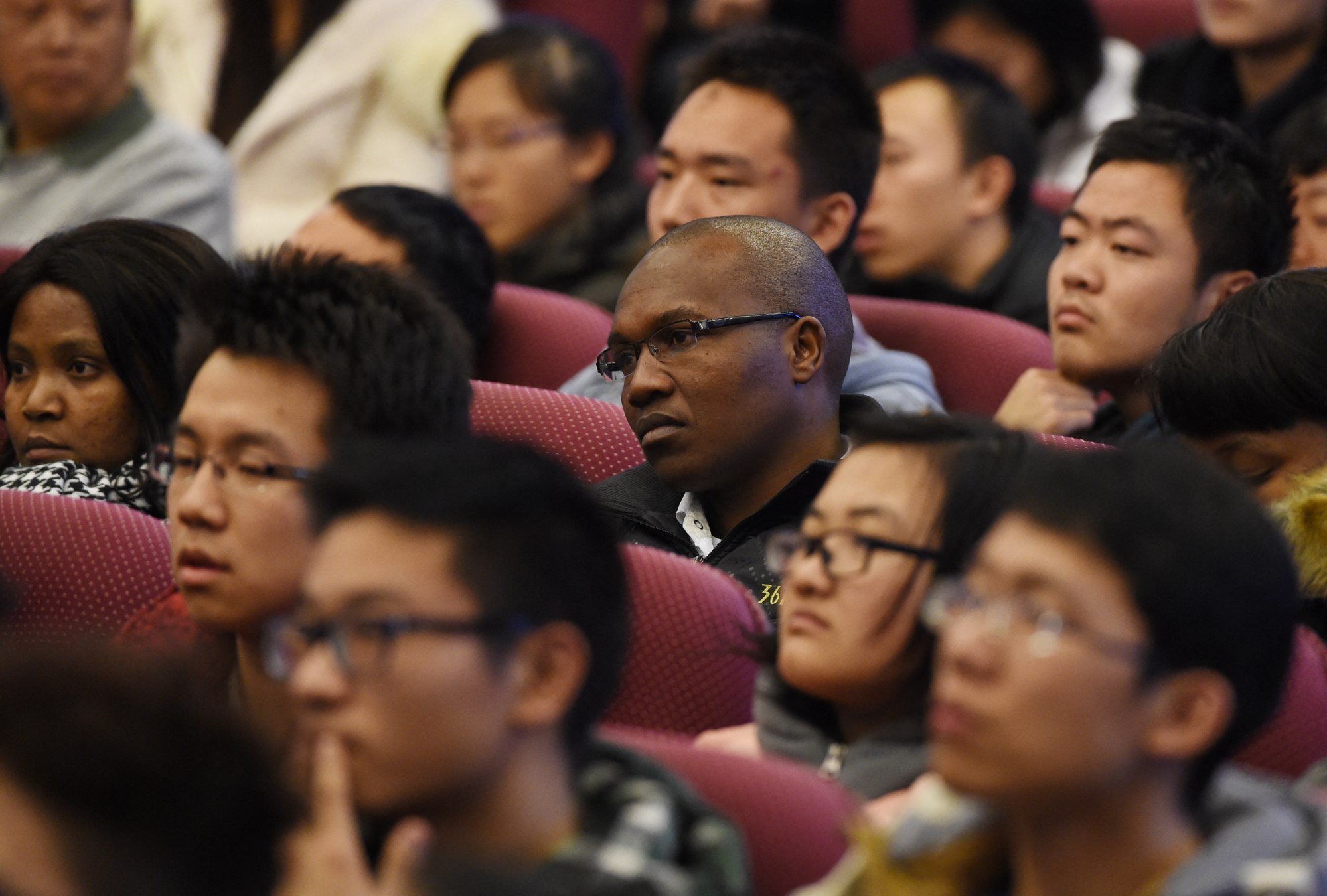
When African students in China fled their cities amid racist cries against ‘black devils’ from Chinese students marching in the streets
- This lesser-known slice of Chinese history was sparked by a fight between African and Chinese students at a university in Nanjing in 1988
- Ken Kamoche, who brings the events to life in his novel Black Ghosts, explains how he learned ‘what it was like being chased out of town in fear of your life’
On Christmas Eve 1988, a group of African students from Hohai University in Nanjing, in eastern China, attempted to enter a college dance. They were asked to show their IDs and to register their Chinese girlfriends. When they refused, a fight broke out that escalated into stone-throwing riots; 11 Chinese and two Africans were injured.
By December 26, at least 130 African students had gathered at Nanjing’s main railway station, attempting to flee, while a thousand Chinese students marched in the streets yelling racist slogans against “black devils”.
Within a week, similar incidents were being reported in other cities, including Wuhan, where a dozen African students were kept in isolation after an attack by several hundred Chinese students. In a New York Times report, a government spokesman said they were “on a special holiday trip”.
This lesser-known slice of Chinese history provides the background for Ken Kamoche’s novel Black Ghosts, which tells the tale of Dan Chiponda, who travels from his village in 1980s Zimbabwe, southern Africa, to Nanjing to study engineering.

There he encounters Kabinga from Rwanda, Diallo from Guinea, Chinese women whose breasts are compared to various fruit (mango, pear, lemon) and shower comrades. These, less titillatingly, are Chinese students who merely wish to use the superior washing facilities in the foreigners’ dormitories.
Racism is the core problem but it becomes clear that the gulf between the local students’ living conditions and those of their comparatively pampered visitors is stoking additional resentment.
How racism affects black people in China and Hong Kong
When the riots occurred, Kamoche, who was born in Kenya in 1964, was doing postgraduate studies in management as a Rhodes scholar at Oxford University’s Templeton College in the UK, having studied accounting and finance at the University of Nairobi. He knew nothing about 1980s Nanjing, nor much about 1980s Zimbabwe, a country he has never visited.
It was only when he arrived in Hong Kong in 1998, to teach human resources management and organisational behaviour at City University of Hong Kong, that he discovered Africans had been part of China’s quest for soft power since the 1960s.
“I encountered Africans who’d studied, stayed, set up businesses in Hong Kong and China and were raising families,” he says in a recent video interview from Nottingham, England, where he is a professor at the university’s business school and lives with his Hong Kong wife and their two teenage sons. “There are certain pubs in Tsim Sha Tsui where Africans hang out, you go and find them and you learn about their experiences.”

Kamoche, who had yearned to be a writer since childhood, was soon taking extensive notes. “A couple of the guys I met had studied in Nanjing and they told me, in very vivid and very graphic terms, what it was like being chased out of town in fear of your life.”
These accounts proved invaluable. The Nanjing section, which takes up almost half the book, conveys late-1980s China from a rare perspective. Amid the urban dust and coal, there are “thick mushrooms that remind you of African thatched huts”.
After Dan asks a nonplussed barber for a haircut, a customer keeps up a running commentary “as if he were reporting the scene of a crime”. When a police chief is bribed with cigarettes, “his face loses its belligerence like a chameleon altering its camouflage”.
When push comes to shove, Africans [in China] still find themselves thrown out on the street [today]
African students are followed so constantly “that being ignored is the best welcome you get”. Western students are stared at too, but not as if they’re “a mad dog that needs to be shooed off the streets”. Eventually, the effect of the Nanjing riot, and the discontent of Chinese students, ripples out to Tiananmen Square in June 1989 (a historically accurate trail), which is briskly dealt with on a single page.
The story shifts to Dan’s experiences in the late 1990s, the era of Kamoche’s own time in Hong Kong and mainland China. Did he feel like a black ghost then? “In some ways … but it was much milder. No one asked me to wait while white people were served first, which happened in the ’80s when black people were powerless.”
In the final section, with its unexpected flavour of Frederick Forsyth, Dan returns to a Zimbabwe in the violent throes of Robert Mugabe’s land reforms. Characters from the earlier section re-emerge on African soil. It turns out – no spoiler alert required – that corruption and greed can unite humanity no matter what colour it is.

Oddly, Hong Kong, where Dan’s marriage to his mainland Chinese wife goes through problems, proves the least interesting location. In real life, however, it reignited Kamoche’s dormant literary ambitions. “What sparked this was coming across the Hong Kong Writers Circle. They were very keen on supporting each other, meeting to critique each other’s work.”
In 2008, the year after he left for the UK, his short story collection A Fragile Hope was shortlisted in the Africa section for the Commonwealth First Book Award. Black Ghosts, first published in Kenya in 2012 but now available to a wider audience, grew out of that success.
These days, Kamoche is director of Nottingham University’s Africa Research Group, in which capacity he organises conferences at the university’s sister campus in Ningbo, China.
Lisa Ling’s This Is Life gets to the roots of anti-Chinese racism in US
“We do have black professors there,” he says. “This would never have happened in the 1980s. Chinese society is in some ways more accepting but it’s not necessarily more tolerant of foreigners. You remember in 2020 when black people in Guangzhou were being blamed for the spread of Covid? When push comes to shove, Africans still find themselves thrown out on the street. How different is that from the 1988 I’m describing in the novel?”
